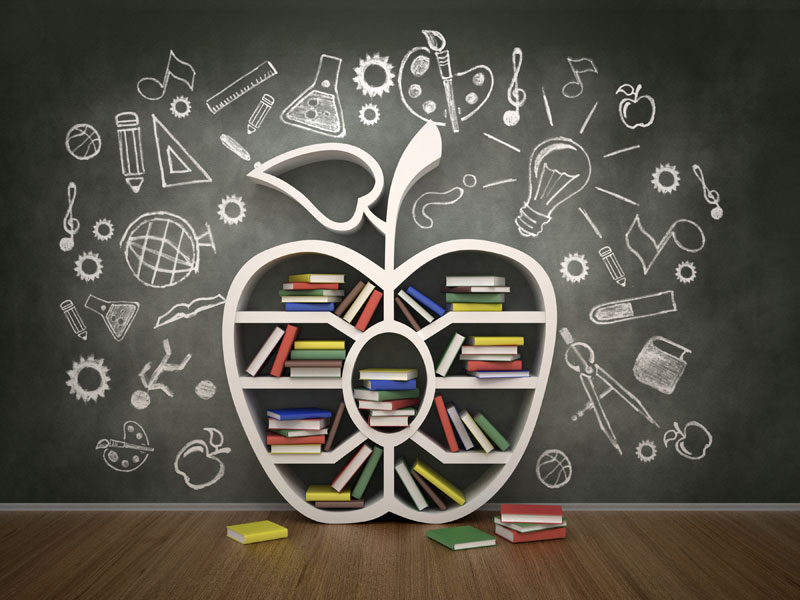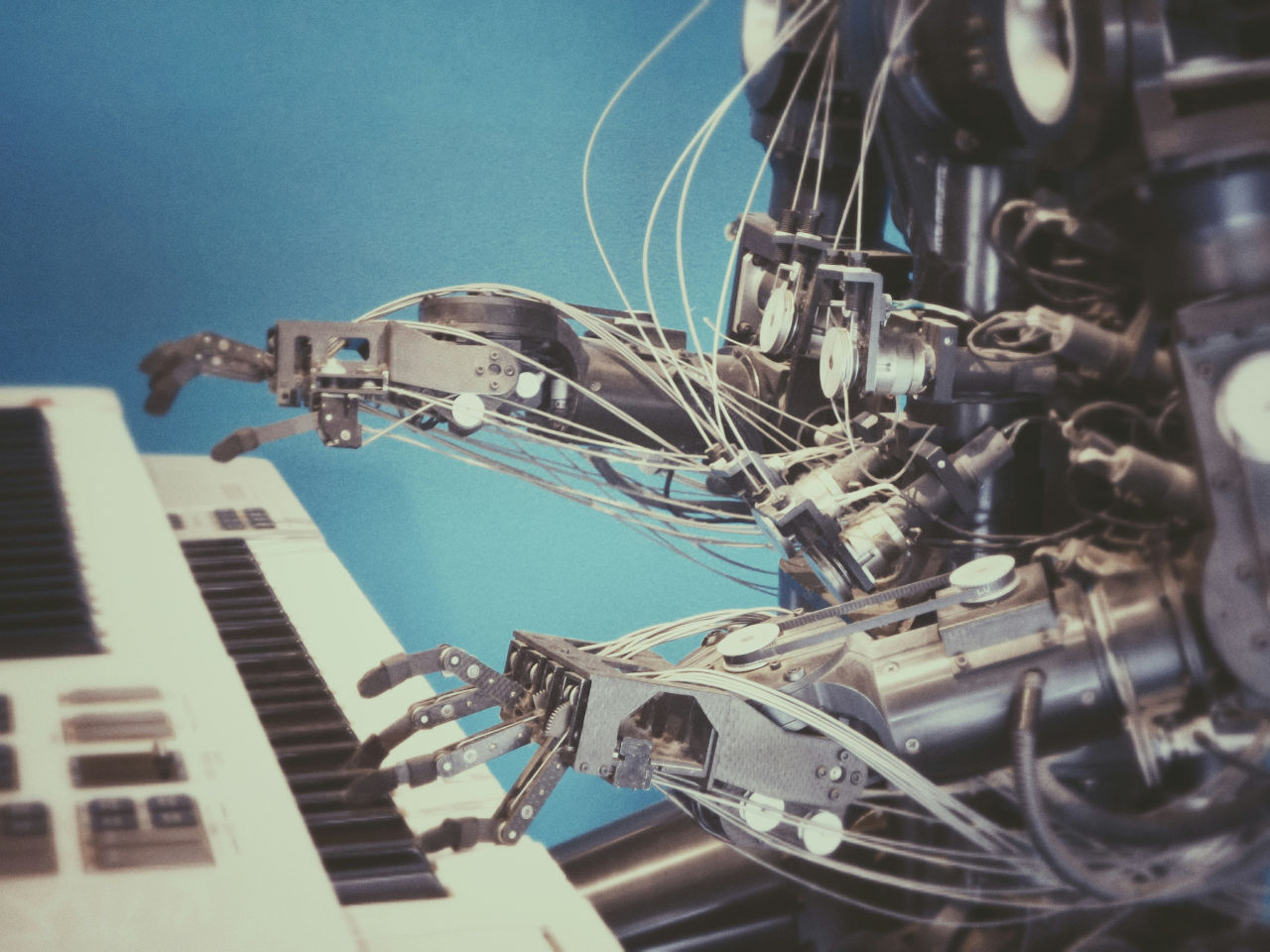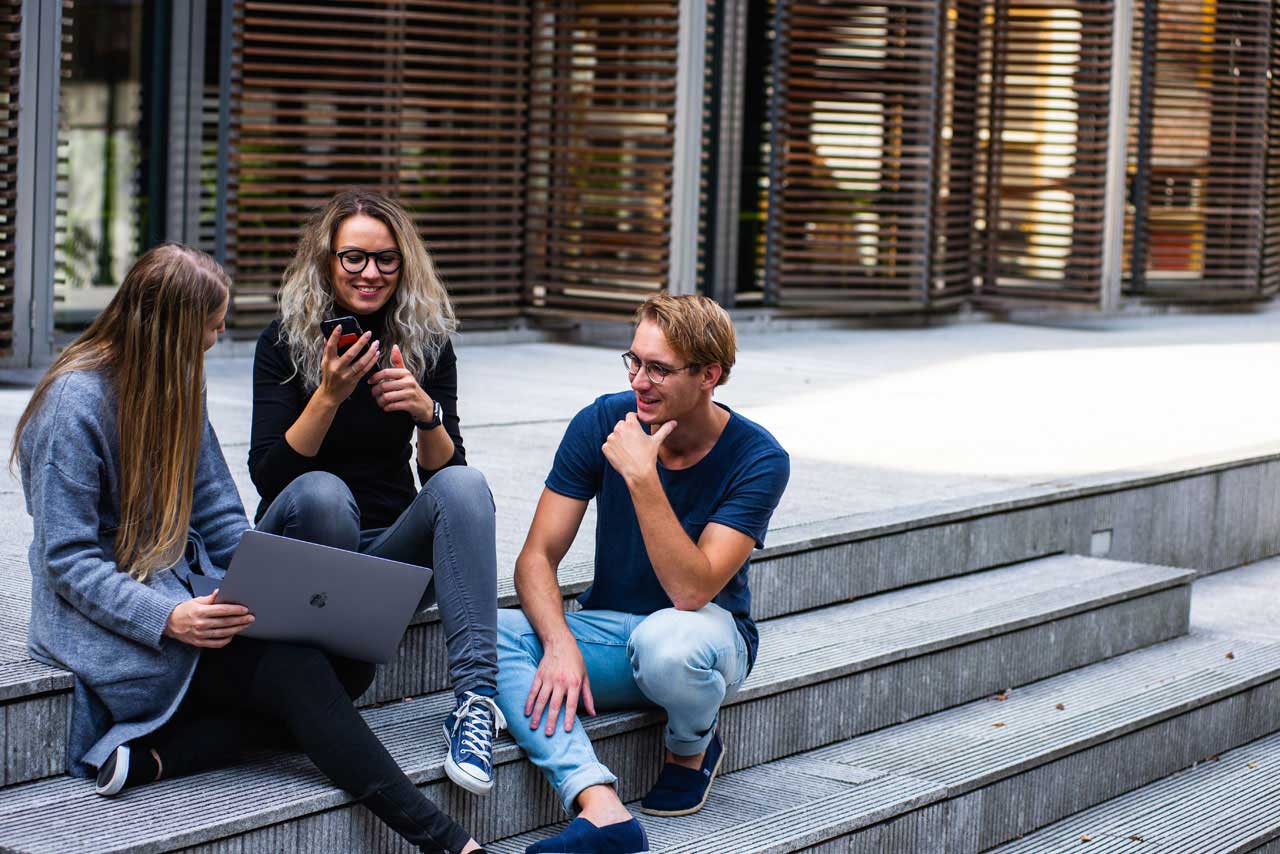Ray Kurzweil has quite a reputation for predicting the future. He picked out that a computer would beat the best human chess players by 2000, which they did in 1997, and he managed to foresee the massive growth in the internet. Another prediction he’s well known for is that by 2045 a single computer will be more powerful than the entire human race.
It’s difficult to predict what happens after that.
Kurzweil is responsible for the law of accelerating returns, which is what he uses to make his predictions. It describes an accelerating rate of major innovations and changes to our way of life, technological change is not linear, it’s exponential.
We’re at a point where tech is advancing faster than most people can keep up with. In what seems like no time at all, we can now provide education to anyone in the world through the internet; we can print out replacement limbs with 3D printers; we can even grow replacement organs. In the future, data and information is going to be able to transfer anything, from clothes to food to body parts, to anyone with a need for it.
As author Dan Pink points out, this new world requires a new mind, where the previously dominating power of the analytical left brain makes room for the artistic and conceptual capacity of the right. But even more, it will require adaptability, we will need to see beyond the now or the next couple of years, to see the bigger picture and to plan our change so that we can thrive in that new environment.
Enter Holism
With importance shifting to right brain creative thought and adaptability, so should our learning and educational habits shift to reflect it. Rapid changes require adaptive learning strategies, where we aim for higher order conceptual knowledge and an interdisciplinary skill set.
Holism is the idea that a system determines how its parts behave, it’s a way to view a collection of parts as a whole, and to understand the interconnectedness of everything. In the same manner as the brain, it is not enough to only look at what each region is responsible for, it’s more important how they interact and work together.
Holistic education is about integrating multiple layers of meaning and experience as you learn, to build a greater number of stronger connections throughout your memory, and in the process find greater identity, meaning, and purpose.
Holistic education breaks away from the traditional idea of becoming an expert in a single discipline, by encouraging people to explore and expand on what they know into other areas of life. To be a jack of all trades, versatile, able to see and understand the bigger picture.
There are several important facets to a holistic education, that I’ll present here.
Holistic education
1. Purpose:
We need a good reason for learning, something that goes beyond monetary gain or status, to intrinsic desires such as personal growth and self-actualization. When the material is meaningful to us and helps us reach a higher goal, it grips us with greater force.
2. Freedom:
We should have control, autonomy is one of our fundamental drives, realizing that being in charge of our destiny is highly motivating. This relates to the DIY style of learning, in which we make our own way, our own mistakes, and learn from them much more effectively than through second hand transfer.
3. Connection:
What we learn should relate in some way to what we know. Knowledge is a web, by having more connections we form stronger memories, and gain more of a conceptual understanding of the whole. Connections can come from new information, emotions, or senses such as taste or sound — each new aspect of our learning creates a unique thread of knowledge.
4. Social:
Learning is more effective in a social context, when creativity and problem solving are pooled together, when we can see how what we do affects others and the community, and when we can empathize with members of our group and extend that empathy to all different kinds of people.
5. Transdisciplinary:
Similar to the idea of building connections to what you know, is to break down the boundaries of your profession or specialization to explore the surrounding fields. Everything is connected in some way, you learn more about chemistry if you learn some physics, and more about economics with a little psychology.
6. Holistic:
We often break things down into smaller parts, which is helpful, but also acts to separate things that in reality are not separate. We should continue to do so, but also spend time looking at how everything works together, how the whole defines it’s parts and not vice versa. This helps work towards both the transdisciplinary and connection aspects.
The Future
Each aspect of holistic education, like itself is trying to teach, should not only be seen as individual parts but also as a whole. Taken together they provide a model of the human learning experience, showcasing how we learn through intrinsic motivation, immersion, and communication.
In the near future, self-directed creative leaders who adopt a form of holistic education will thrive. They will see the whole as well as the parts, they will be able to easily empathize with and find purpose in other people, they will know how to draw out the highest forms of motivation and flow from the people around them as well as themselves.
Most importantly, they will know to adapt and thrive quickly. With the technological rate of change only growing, leaders must be able to predict beyond the now and see into the future, those who can will be those who see the bigger picture.





Life in the 21st century , as in any other century, requires intelligence as ‘creative intelligence’ based on the integration of intellect of the mind with consciousness of higher morality or ‘spirituality’. We need to offer children everywhere an education which provides them with the conditions of freedom for meaningful learning which they need to cultivate their true intelligence.
I feel happy about the write up because it is very reassuring. I have personally seen and experienced the interconnectivity of the different facets of holistic education. Even in my younger years I’ve loved to learn about many things. The practice has generated in me a wisdom that penetrates truths. Consequently, I feel confident I am now in a better position to meet the future, given the necessary digital media skills I wiill need.
Great Roland! The future is a wild card so the more broadly we learn about the world, the more adaptable and creative we will be.